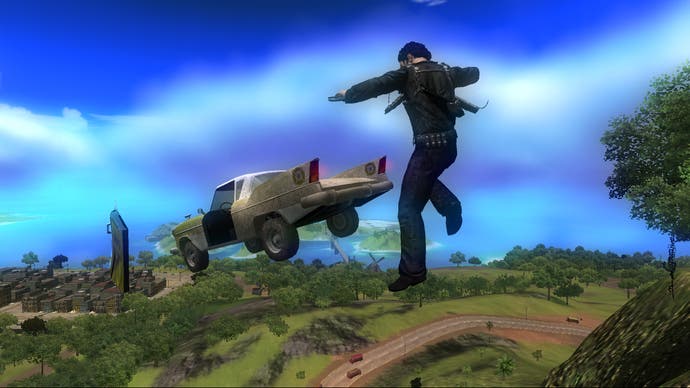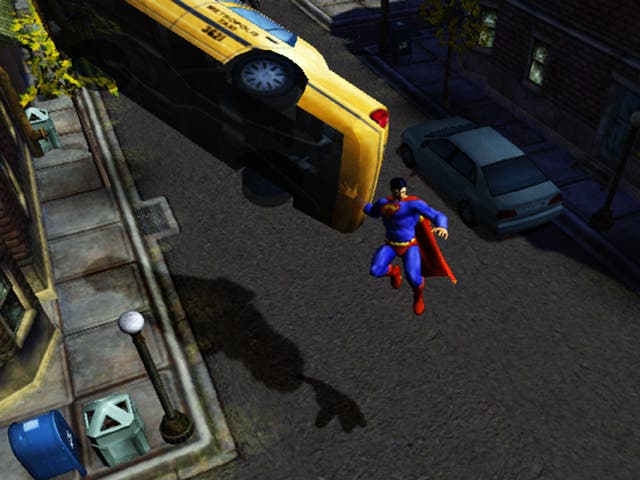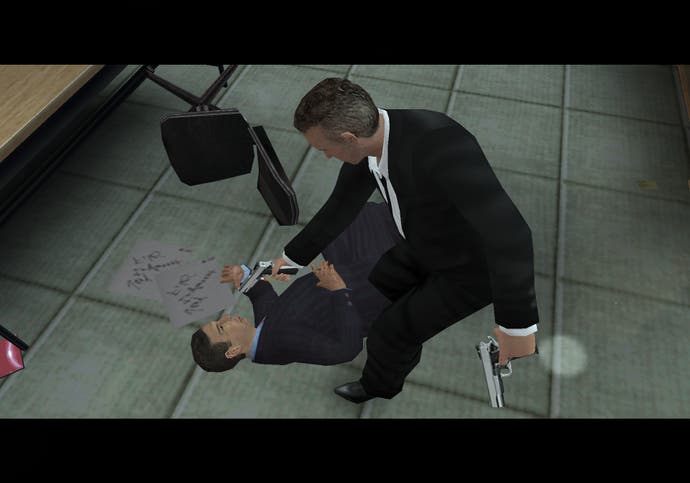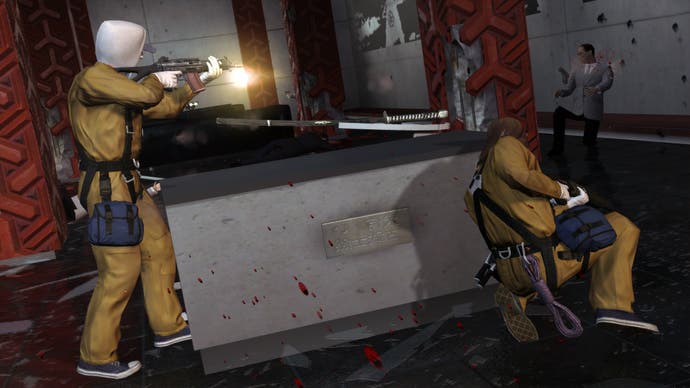Changing Times
Eidos' Ian Livingstone on the next-gen battle.
Ian Livingstone's career history, which now spans more than three decades, has been well documented. From Games Workshop and Fighting Fantasy to Eidos, Tomb Raider, a BAFTA and an OBE, he's not just an industry veteran, but something of an industry legend.
It looked as if Livingstone was about to embark on a new path in May of last year, when he left Eidos after the company was taken over by SCi. But in September, he returned - the only board member to do so - to take on the role of product acquisition director.
Since then, Eidos has enjoyed multi-platform success with Tomb Raider: Legend, hailed by both critics and fans as a return to form for the series. Next week, Livingstone will deliver a presentation discussing Lara's enduring appeal at the Edinburgh Interactive Entertainment Festival. GamesIndustry.biz got the chance to ask Livingstone about his commitment to EIEF, and whether it isn't about time gaming got a new icon - you can read what he had to say in part 2 of our interview, to be published tomorrow.
But for now, here's part 1, where Livingstone discusses Eidos' plans for the Leipzig GCDC, the next-gen console battle, and why game development is a riskier business than ever.

We're going to have a number of products on the show floor there. We're showing Just Cause, Battlestations Midway, Justice League Heroes, Bionicle Heroes, and Tomb Raider: Legend on DS and GBA.
Then, behind closed doors, there's a presentation of Kane and Lynch from IO. Eidos Mobile will also be showing a bunch of new titles like Balloon Headed Boy, Prism and Pandemonium. We should also have some details on a new Championship Manager, Reservoir Dogs and of course Millionaire.
The beauty about being an independent publisher is that you can support any platform, of course, and we are going to support all three. It's quite apparent that it's going to be a much closer race this time around. Sony has had a recent history of being the clear winner, and I don't think anybody believes that's going to be the case this time.
It's going to be a much closer race and significantly, I think Nintendo, with the Wii console, is going to be right back up in the thick of it. It's quite interesting that they've decided not to go head-to-head with Microsoft and Sony, with the high quality interactive cinematic action adventure games; they've gone for gameplay over graphics instead. I think that's quite an interesting move and it could be very successful for them.

Absolutely, yes. As a games designer myself for many years, it's great to see that gameplay innovation. It's like a real breath of fresh air. At the end of the last cycle the genres had become too crowded, the games had become too hard and people just don't have the time any more to spend on 60 hours of gameplay. So to suddenly have this massive weight lifted off your shoulders, to be able to create games that are based on gameplay rather than these intensive graphical productions, is a great opportunity for everybody.
I don't think anyone knows who's going to win this race. I'm just saying it's not going to be as clear cut as during the last hardware cycle. It's much more of an open race and it's a very exciting time for independent publishers like ourselves, to be able to successfully leverage our IP over more formats than before.

Well, yes, but they also appeal to a different consumer. Sony is going to have quite a lot of marketing to have to spend, to let consumers know that the PS3 is not just a games machine but a complete home entertainment system with Blu-ray. To get the consumers to understand exactly what that means, and how that justifies the cost of the hardware - that's going to be the challenge for them.
Microsoft has obviously got a 12-month headstart on the competition, and Nintendo has come in with a much cheaper priced product that concentrates on gameplay above all else. It's probably going to appeal to a younger audience, but I think adults are going to like that as well. Especially the ones who have got no time and just want a quick game which is something fun and something different.
So it just creates another platform, and we welcome it the way we welcome any new platform, whether it's SingStar, Buzz, mobile, PSP, DS, interactive DVD, interactive TV - it doesn't matter, because whatever platform is there, we can exploit it.
It's extraordinary quality, that's the starting point. If people are seeking the ultimate machine, the PS3 is clearly the best spec machine as far as next-gen goes. As with all things in life, you have to pay for quality. It is absolutely beautiful to look at and you are getting virtual interactive cinema in the comfort of your own home. It's a very compelling selling point and Sony just has to educate people that yes, it's a lot of money, but it'll be worth it.

Well, development costs continue to escalate, but we have to manage that like anything else. 15 years ago, it was two blokes in a garage making a game, and you could make lots of titles. It definitely makes you a lot more risk averse in this day and age, when you have to invest £5 million-plus in a title - you can't afford many mistakes.
The way I think everyone's addressing it is to spend more money on pre-production budgets which they can then get out of if they have to. Not that they want to - but needs must.
Ian Livingstone is product acquisition director at Eidos. Interview by Paul Loughrey. Come back tomorrow to read the second part of this interview.
